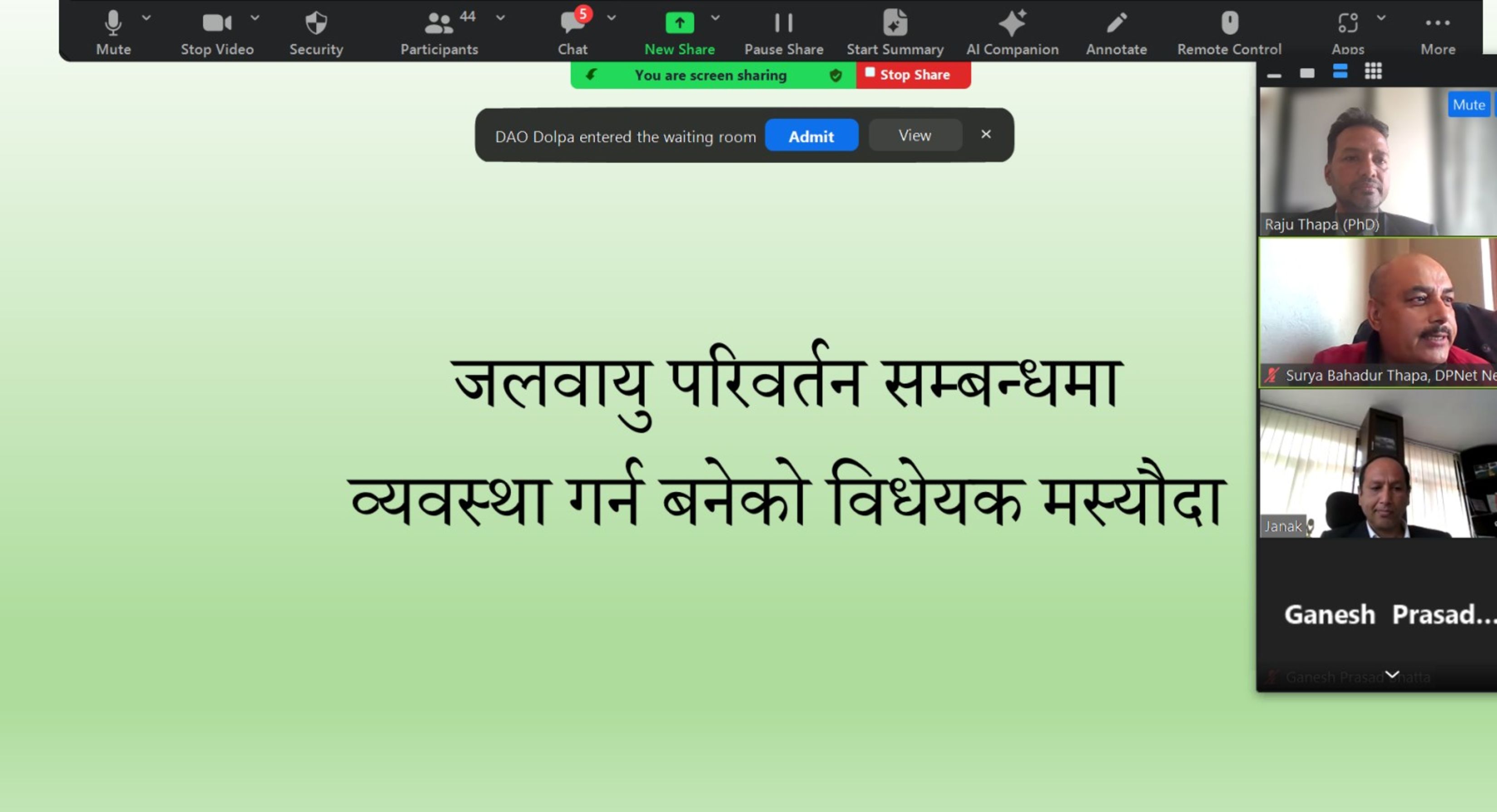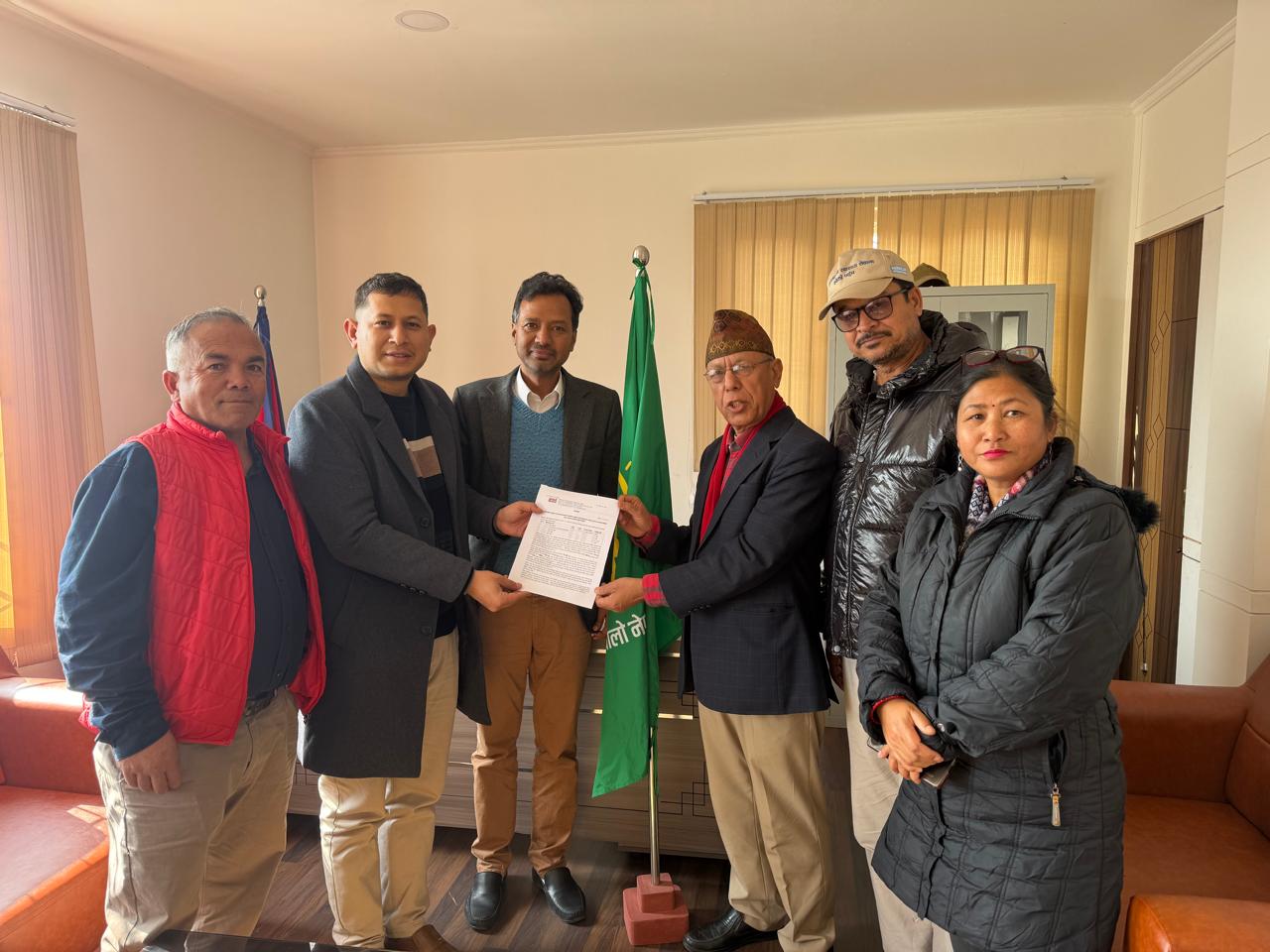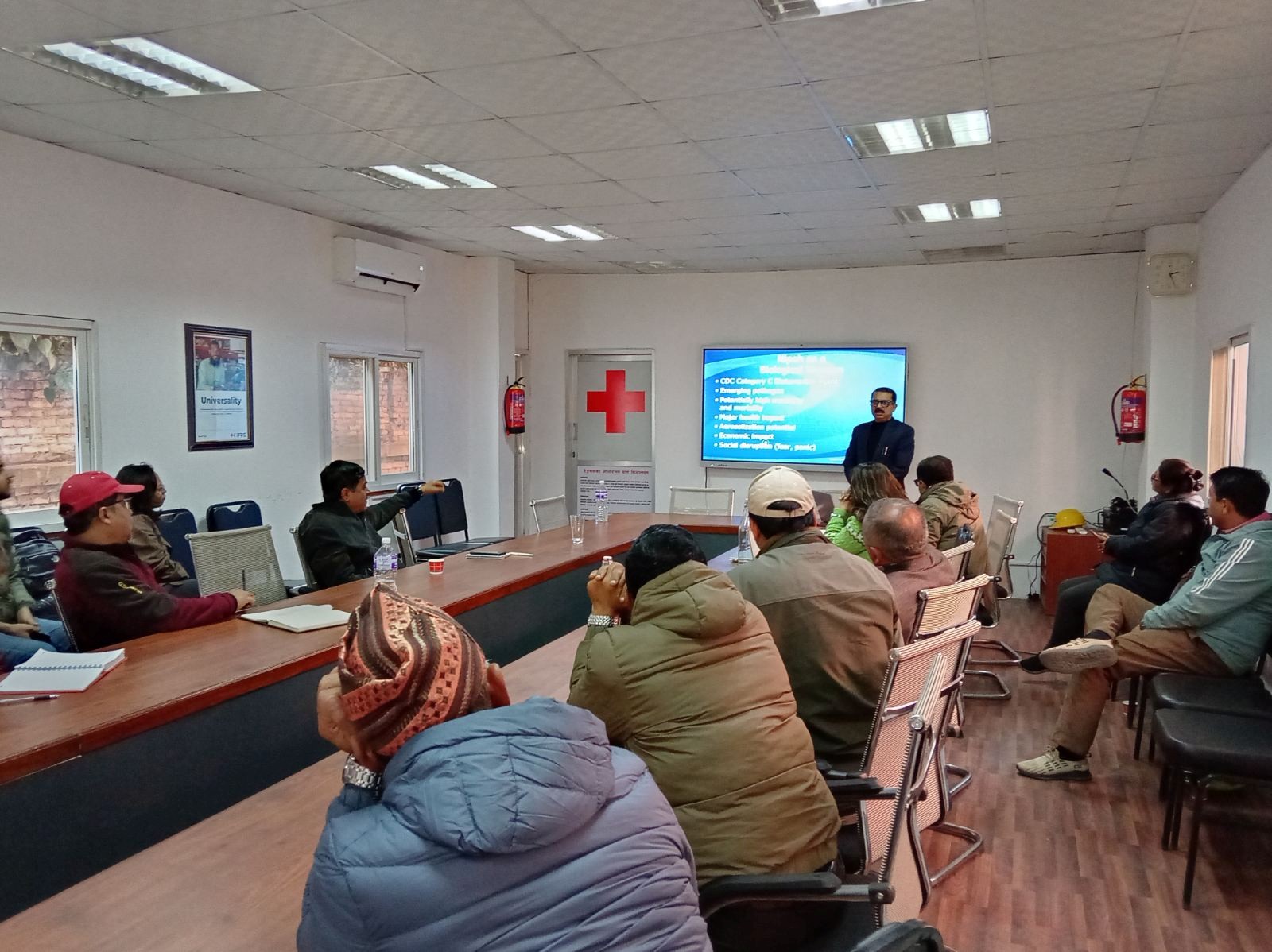Virtual Discussion on Draft Climate Change Bill

DPNet organized a virtual discussion program on March 14th to solicit feedback on the draft Climate Change Act introduced by the Nepal Law Commission. The event saw the participation of 71 stakeholders, including civil society organizations and climate change experts. The program was chaired by Mr. Surya Bahadur Thapa, Chairperson of DPNet, who emphasized the importance of the draft Climate Change Bill. He highlighted the ongoing virtual discussion on DPNet's webpage to collect further feedback on the draft act and encouraged participants to contribute their written feedback.
Dr. Raju Thapa, Vice Chair of DPNet, detailed the provisions of the draft bill, which was formulated in response to the Supreme Court's directive to the government for the introduction of a Climate Change Act. Dr. Thapa outlined the establishment of a Climate Change Authority and a National Council on Climate Change, chaired by the Prime Minister, which aim to bring out Nepal's efforts in climate change mitigation, adaptation, and finance.
The draft act proposes a comprehensive framework for climate change governance in Nepal, including the innovative concept of a Climate Budget for targeted climate action, the setting and trading of carbon targets, and the establishment of a Climate Change Fund to support sustainable development. It emphasizes the need for a holistic approach that incorporates social, gender, and environmental justice to protect the rights and livelihoods of vulnerable communities.
However, the open floor discussion raised several concerns and suggestions for refining the draft act. Some participants questioned the necessity of creating new institutions like the Climate Change Council and Authority, suggesting instead to amend the existing Disaster Risk Reduction and Management (DRRM) Act, 2017, to include climate change responsibilities. Concerns were also raised about the practicality of the proposed council's large membership and the Prime Minister's involvement, suggesting a more streamlined structure could improve efficiency. Other suggestions included revising the CEO's qualifications, ensuring inclusive representation from the federal structure, and clarifying the roles of NGOs in implementing climate change plans.
In his closing remarks, Mr. Surya Bahadur Thapa assured that DPNet would document the discussion and feedback received through the virtual platform and provide collective feedback to the Nepal Law Commission. He thanked all participants for their active participation and contributions towards shaping Nepal's climate change policy.











